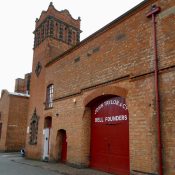January 2026 Newsletter
The January 2026 Newsletter contains items on:
+ Our February 2026 lecture, Under The Car Park;
+ The 2026 AGM on Tuesday 17th February in the Village Hall, Onyx Room;
+ The 2026 Membership fees, which are now due;
+ Request for help with the Raffle.
Click link for further details and to access a copy of the newsletter.


